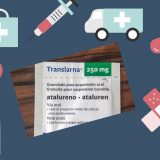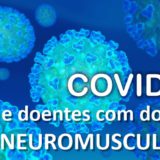Resultados positivos com o uso de células tronco musculares em cães com distrofia muscular
França – células tronco musculares foram cultivadas em laboratório e injetadas por via sistêmica em cães com distrofia muscular. O tratamento foi eficiente com expressão da distrofina, melhora das alterações patológicas, regeneração das células satélites; estes efeitos persistiram por longo prazo.
O resumo em inglês da pesquisa pode ser lido abaixo:
(The American Journal of Pathology, Available online 13 September 2011) Systemic Delivery of Allogenic Muscle Stem (MuStem) Cells Induces Long-Term Muscle Repair and Clinical Efficacy in Duchenne Muscular Dystrophy Dogs
Karl Rouger, Thibaut Larcher, Laurence Dubreil, Jack-Yves Deschamps, Caroline Le Guiner, Gregory Jouvion, Bruno Delorme, Blandine Lieubeau, Marine Carlus, Benoît Fornasari, Marine Theret, Priscilla Orlando, Mireille Ledevin, Céline Zuber, Isabelle Leroux, Stéphane Deleau, Lydie Guigand, Isabelle Testault, Elisabeth Le Rumeur, Marc Fiszman, et al. – France
Here, we characterized canine delayed adherent stem cells and investigated the efficacy of their systemic delivery in the clinically relevant DMD animal model to assess potential therapeutic application in humans. Delayed adherent stem cells, named MuStem cells (muscle stem cells), were isolated from healthy dog muscle using a preplating technique. In vitro, MuStem cells displayed a large expansion capacity, an ability to proliferate in suspension, and a multilineage differentiation potential. Phenotypically, they corresponded to early myogenic progenitors and uncommitted cells. When injected in immunosuppressed dystrophic dogs, they contributed to myofiber regeneration, satellite cell replenishment, and dystrophin expression. Importantly, their systemic delivery resulted in long-term dystrophin expression, muscle damage course limitation with an increased regeneration activity and an interstitial expansion restriction, and persisting stabilization of the dog’s clinical status. These results demonstrate that MuStem cells provide an attractive therapeutic avenue for DMD patients.



